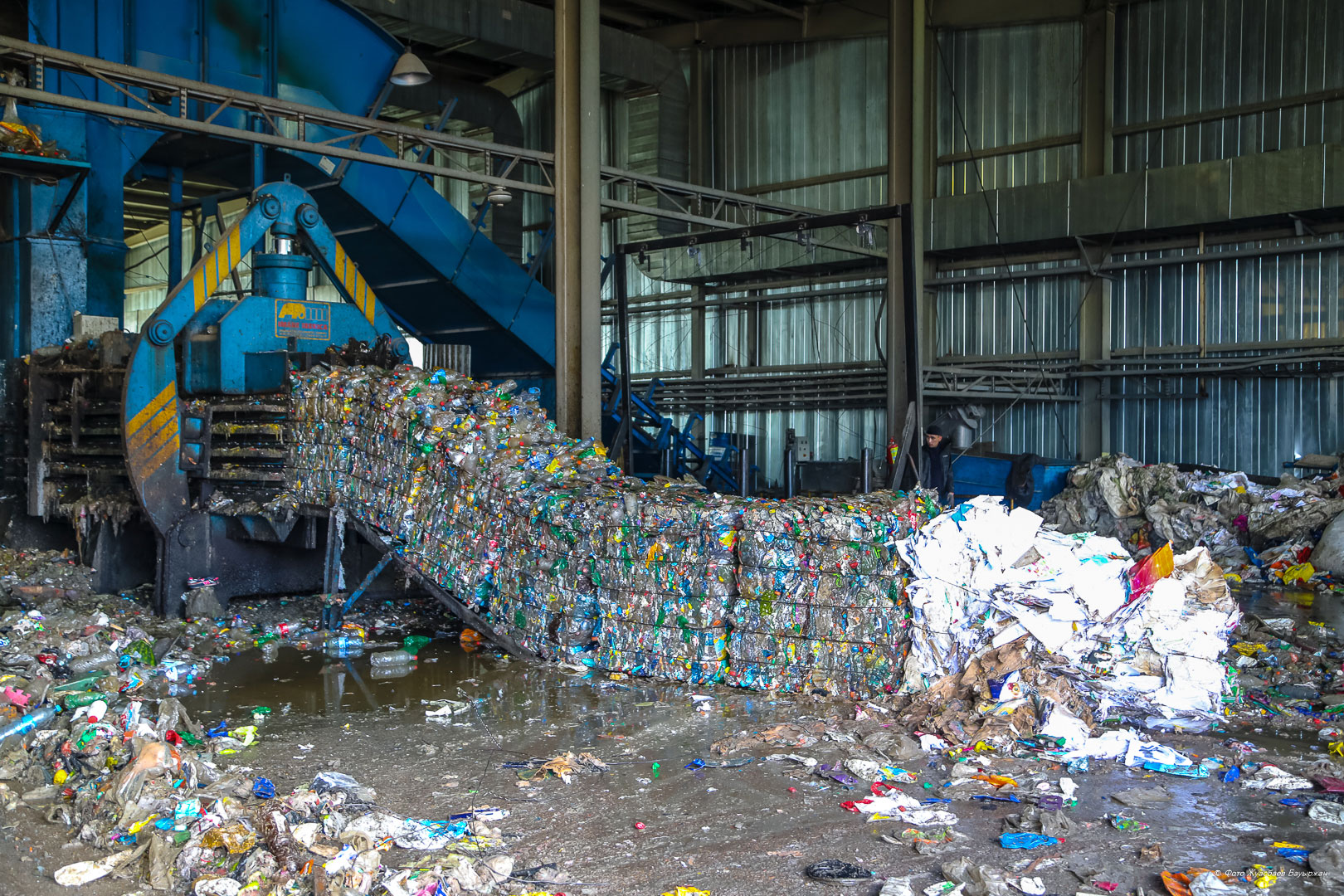NUR-SULTAN – Kazakhstan’s Packaging Association, an organization that represents paper and package producing factories, suggested the government adopt a closed cycle strategy for processing used plastic bottles, reports inbusiness.kz. This means all plastic waste should be collected by domestic recyclers, reprocessed and the earned money invested in infrastructure and promotion of cleaner, greener environmental practices.

Approximately 5-6 tons of solid household waste are generated annually in Kazakhstan. Photo credit: recycle.kz.
“Kazakhstan produced nearly 2.3 billion litres of beverages, juices, mineral water, and sunflower-seed oil in PET bottles last year. Approximately 1.5 billion bottles are imported annually. How much is recycled? We estimate a maximum of 5 percent as 11 current functioning factories don’t have enough plastic to recycle and there is no regulation in this area. We know that part of the used bottles is exported to Russia and Uzbekistan for processing, and then we buy it in the form of recycled material. The rest goes nowhere,” said Batyrbek Aubakirov, Chair of Packaging Association.
An average Kazakh household throws out around 500 plastic bottles a year, according to Tau Innovative Solutions, a company working in green construction design and waste management.
The association members believe that the measure will stimulate the sale of used plastic bottles to domestic recyclers and will boost cooperation with the EPR Operator (extended producer responsibility), a government-owned company that partially compensates collectors and recyclers’ expenses.
Klara Abdrahmanova, director of Green Technology Industries, said her company reprocesses about 40-50 tons, but its capacity allows for the reprocessing of around 100 tons and more. In other words, the number of jobs may also increase two-fold with a greater workload.
The association members plan to launch a pilot project with a mineral water producer in Karaganda or Shymkent, where they will install vending machines for plastic bottles in the city’s areas.
“It is not enough to install a vending machine, we should post it on billboards and teach our children at school. We could also showcase public service videos about ecology before movie screening in cinemas,” said Aubakirov, noting the importance of joint efforts of the state, society and business in this area.
Annually, Kazakhstan produces nearly five million tons of household solid waste, which is sorted out and processed at factories in the cities of Nur-Sultan, Shymkent and Zhanaozen, as well as small and medium-sized businesses. But the proportion of the recycled and disposed solid waste remains low – only 15.8 percent.

